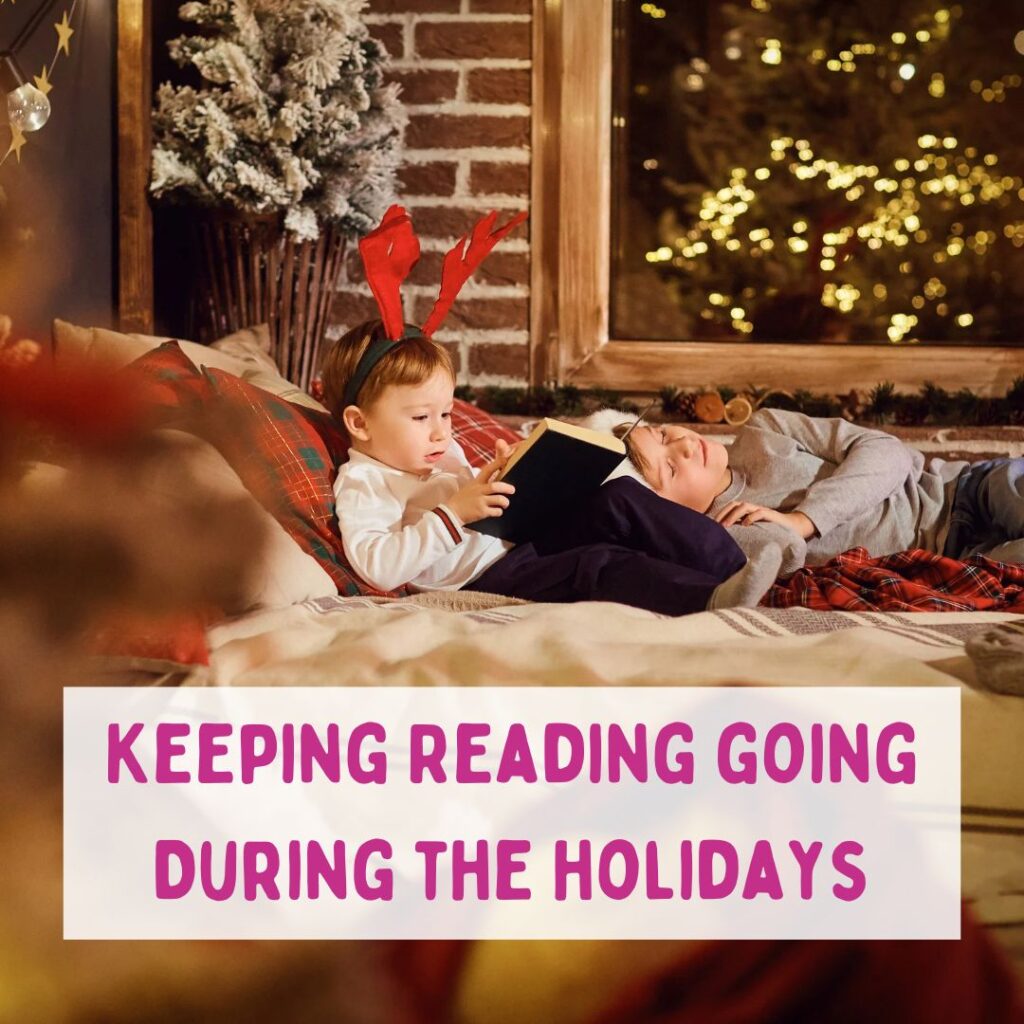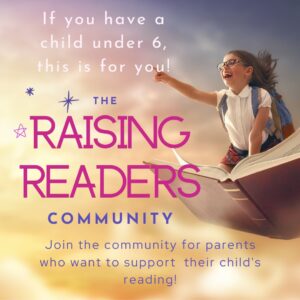Keeping Reading going during the Holidays

Every school I know has now broken up for the holidays, and while it’s definitely the most wonderful time of the year, it can be the most stressful time too! We all know we need to be keeping reading going during the holidays, but with so many other things going on, it can be easy to push it to the side.
We know reading is the most valuable part of our little ones’ education. Reading is the root to all other forms of learning, including maths! (Remember all of those wordy questions?) The great thing is, this means that ensuring your child keeps their progress going over the holidays is as simple as reading to and with them. But even that can seem overwhelming at a time like this.
Below I’ve written some ways to keep reading going during the holidays that will hopefully make it stress free! It might even be the easiest thing you do all Christmas!
Keep to a schedule
Whatever schedule you use during term time, try to stick to it. If you read with your little one first thing in the morning, keep doing so! Equally if you read as part of your bedtime routine, keep it up. Keeping consistency even when your child isn’t at school will help them continue to value reading, showing them that it’s not just something they do at school. It also helps them transition from school to home and back again, something that lots of kids struggle with.
As always, I recommend having 2 reading sessions a day, one where your child reads to you (or with you – check out more information about this here – How to engage your child with reading) and one where you read to them. This gives them a chance to continue to enjoy books without the added pressure of having to work every time!
Utilise the Library
The library is the most amazing resource, especially around the Christmas holidays! Not only is it a warm space that doesn’t require any money to go to, there are often lots of events on in your local library around Christmas, specifically for your little one. From interactive story sessions to lessons on how to find books, the library is fantastic for engaging your little one with books and stories.
The library is also fantastic for finding books that your child is excited by. Giving them a few minutes to find books by themselves will make them more excited to read them later. It also gives them a little bit of independence and control over what they’re reading.
Call on relatives
Christmas tends to be a time when families come together to celebrate or just catch up. If your family is the same, utilise it! Encourage your little one to show off their reading skills, or get your relatives to take some time reading to the kids. Not only is it a fantastic way to keep reading going during the holidays, it also helps foster bonds between your child and people they see less often. It’s particularly good if you have a child who is nervous around new people, as reading a book doesn’t require them to interact. They can just sit and listen until they feel more confident.
It’s also a great way to engage several children at once, giving the other adults a minute or two to deal with the other parts that come with Christmas, or just give them a break!
More than books
Remember that reading doesn’t just have to focus on books. It’s perfectly possible for your little one to get reading experience from magazines, comic books or writing on food boxes! Even putting the subtitles on the telly while you’re watching something will have an impact on your child’s reading, though it won’t completely replace reading with or to an adult!
Playing games
The final thing you could try over Christmas is playing a variety of games. They keep your child entertained, can be done by lots of different family members, and boost your child’s reading skills. For some ideas on games to play, try my blog on listening games, or take a look at the bunches of resources I offer for each age group and phonics phase in the shop!
Thank you so much to everyone who’s supported me this year, whether it’s been by reading my blogs, checking out my facebook or instagram, or simply being there. I’m truly grateful for each and every one of you. You really keep me going!
If you’d like to follow me on facebook or instagram, click on the links below! I’d love to have you!
Last but not least, Merry Christmas and Happy Holidays! I hope it’s a wonderful time for everyone!

